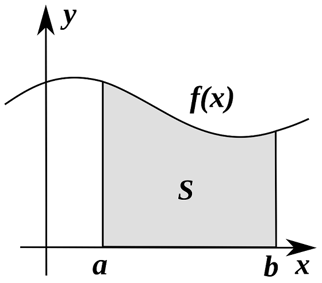Easy High School Math Courses for My Transcript
Choosing which math classes to study can be one of the most challenging parts of planning your high school schedule. High schools offer numerous math classes, often at varying degrees of difficulty, and it can be difficult to know which math classes will be the best for you and your future. Read this guide to learn about standard high school math curriculum, AP and IB math courses, which math classes colleges expect you to have taken, and ways to exceed those expectations. Most high schools require students to take three years of math in order to graduate and recommend taking four years. These requirements often also include completing an algebra class and a geometry class. Forty-five states have agreed to follow Common Core standards for math, which aim to create a more standardized math curriculum across the country. The Common Core standards state that six content categories should be covered in high school math classes: However, these standards are very broad and don't specify which math concepts should be taught at which grade, so there is still a lot of differentiation among schools and among states. For high school math, there is not a specific course you should be taking as a freshman, sophomore etc. Instead, there is a series of courses, and each student begins with the math class best suited for him/her, based on testing and prior math knowledge. The typical order of math classes in high school is: However, this order is definitely not set in stone. Some schools teach algebra 1 and 2 back-to-back then move on to geometry, some schools include trigonometry with geometry or pre-calculus instead of algebra 2, and some students take pre-algebra or a similar course if they need to strengthen their math skills before taking algebra 1. However, most high schools follow a course order similar to the one above for their math classes. The math class you take freshman year will be chosen based on your previous math classes and any placement tests you may have taken before starting high school. So, if you already took algebra 1 in 8th grade, you may be able to start with geometry as a freshman and continue down the list from there. Also, not every high school student takes pre-calculus or calculus. While curriculum can vary depending on your teacher, the textbook you use, and the level of your math class, most math classes cover the same main topics. The topics listed below serve as a guideline for the key subjects taught in each math class. Algebra 1: Real numbers; solving, writing, and graphing linear equations; quadratic equations and functions; polynomials Geometry: Plane and solid geometry including constructions, formulas for measurement, and formal proofs Algebra 2: Continuation of the concepts taught in algebra 1, including a more in-depth study of graphing and solving equations, inequalities, and functions Trigonometry: Applies algebra and geometry skills to circular and periodic functions. NOTE: Trigonometry is usually not its own class, but is often taught during algebra 2, geometry, or pre-calculus Pre-Calculus: Series and sequences, probability, statistics, limits, and derivatives Calculus: Continuation of the concepts taught in pre-calculus, with an emphasis on integration and differentiation You'll be seeing a lot of these images if you study calculus Like high schools, most colleges require applicants to have completed three years of math and recommend four years. Selective colleges often require four years of math, and some schools may also require the completion of particular math classes like algebra 2, geometry, or pre-calculus. For students planning on majoring in humanities, the social sciences, or a similar field, the math classes you took in high school will not be as important to colleges because they'll be looking more at the classes that relate to your intended major. This means you don't have to take the most challenging math classes your high school offers, although colleges want fundamentally talented and well-rounded people, so you should still aim to do well in the math classes you do take in order to maintain a solid GPA. If you plan on majoring in a STEM field (science, technology, engineering, or math), expectations will be higher because math skills will be more critical to your college courses and future career. Most colleges will require you to have taken four years of math in high school, sometimes including pre-calculus and calculus. You'll be competing for college offers with many other smart STEM people, so you'll want to help yourself stand out by taking rigorous math classes that are offered at a high level. Regardless of what you plan to study in college, it is highly recommended that all high school students complete four years of math because many colleges expect it, even if they don't require it, and it will help you stay prepared for any math classes you may have to take in college. Read on to learn ways to go above and beyond these expectations from colleges. Want to build the best possible college application? We can help. PrepScholar Admissions is the world's best admissions consulting service. We combine world-class admissions counselors with our data-driven, proprietary admissions strategies. We've overseen thousands of students get into their top choice schools, from state colleges to the Ivy League. We know what kinds of students colleges want to admit. We want to get you admitted to your dream schools. Learn more about PrepScholar Admissions to maximize your chance of getting in. Everyone should take four years of math in high school Because high schools offer many math classes at varying levels of depth, speed, and difficulty, the math classes you take and the grades you receive in them will be looked at closely by colleges to help determine your academic ability and how good a fit you would be at the school. If you are not majoring in a STEM field, you do not need to worry as much about exceeding expectations in your math classes; you can focus the majority of your time and energy on classes more closely related to the subject you plan to major in. It's usually enough to take four years of math and get good grades in those classes. If you have the time and ability to take honors or AP math classes, that's great, but it shouldn't come at the expense of your grades for classes more closely related to your major. For students planning to major in a STEM field, you will also want to take four years of math, but you will want to push yourself by taking advanced math classes, studying those classes at honors or AP level if offered by your school, and getting high grades in your math classes. Below are several examples of advanced math classes that will help show a college that you have strong math skills. There are three AP math classes available: two calculus classes and a statistics class. Many students who plan on majoring in a STEM field or who are confident with their math skills take an AP Calculus course. The material that these two classes cover is very similar, but Calculus BC is seen as more difficult because it moves at a faster pace and covers some additional topics such as polynomial approximations and series, series of constants, and Taylor series. However, both are challenging AP classes, and taking either class is one of the best ways to prove your strong math skills. A solid knowledge of calculus is also required for many STEM careers. This AP course covers exploring data, sampling and experimentation, anticipating patterns, and statistical inference. Statistics is one of the most widely used math subjects, and many career fields require a background in it. AP Statistics is often seen as not quite as rigorous as an AP Calculus course, but it is still a strong course to have on your transcript. This course is a good option for students who want to take an AP math class but either don't feel ready for calculus or would rather take it in college, or for those who feel statistics will be more useful than calculus for their future career. You can check degree requirements at different colleges for majors you are considering to see which math courses different majors require and to determine whether AP Statistics or AP Calculus would be more useful for you. While it can vary between students, in general, students not planning to major in a STEM field can take either AP Statistics or an AP Calculus course if they choose to take an AP math class. Students who are planning to study a STEM subject should take an AP Calculus course because they will almost certainly need to know calculus for their future classes. They may also consider taking both AP Calculus and AP Statistics if they have room in their schedule. Feeling Lucky? AP Statistics may be the course for you. In order to obtain the International Baccalaureate diploma, students must take at least one course from each of the six IB subject categories. Math is one of those categories and has four IB options. IB courses are offered at standard level (SL) and high level (HL). The four math classes, from least challenging to most challenging are: These four courses basically cover the same topics, but at different speeds and with different degrees of difficulty. According to the IB website, in these courses students will develop their mathematical knowledge, along with logic and critical thinking skills. The main topics they cover include algebra, functions and equations, trigonometry, vectors, statistics and probability, and calculus. Similar to AP classes, students majoring in STEM fields should pursue a high level IB math class. If you want to take a specific math class or simply love math and want to take more math classes, there are several options for you. These include both advanced and non-advanced math classes, so they are a possibility for high school students planning to major in any field. Statistics is one of the most common math electives, and it is useful for many career fields. You can take statistics at the AP level (see the above section) or regular level. Other math electives include computer math, math literacy, and math applications. These electives often focus on computer skills or practical applications of math. If your school doesn't offer a specific AP math class or elective, you may be able to take a similar course at a local community college. This is an especially good option for higher-level math classes that most high schools don't offer, such as multivariable calculus, abstract algebra, and proof-based math. Because most high school students don't take these classes, completing one can really strengthen your transcript and show colleges you are prepared for future STEM classes. If you're interested in this option, talk to your guidance counselor about how to enroll in one of these courses. It's becoming more and more common for high school students to take community college classes, so the process may not be as difficult as you might think. Do you love math like Isaac Newton did? Consider taking math classes at a community college. Wondering whether you should take AB or BC Calculus? Our guide lays out the differences between the two classes and explains who should take each course. Interested in math competitions like the International Math Olympiad? See our guide for passing the qualifying tests. Not sure which science classes you should take either? Check out our complete guide to the science classes you should take in high school. One of the single most important parts of your college application is what classes you choose to take in high school (in conjunction with how well you do in those classes). Our team of PrepScholar admissions experts have compiled their knowledge into this single guide to planning out your high school course schedule. We'll advise you on how to balance your schedule between regular and honors/AP/IB courses, how to choose your extracurriculars, and what classes you can't afford not to take. 
Standard High School Math Curriculum
What Will You Learn in Your High School Math Classes?

Which Math Classes Will Colleges Expect You to Have Taken?



How Can You Exceed Expectations?
AP Math Classes
AP Calculus AB and AP Calculus BC
AP Statistics

IB Math Classes
More Options for Math Classes
Electives
Community College Classes

Summary
What's Next?


About the Author
Christine graduated from Michigan State University with degrees in Environmental Biology and Geography and received her Master's from Duke University. In high school she scored in the 99th percentile on the SAT and was named a National Merit Finalist. She has taught English and biology in several countries.
Source: https://blog.prepscholar.com/the-high-school-math-classes-you-should-take
0 Response to "Easy High School Math Courses for My Transcript"
Post a Comment